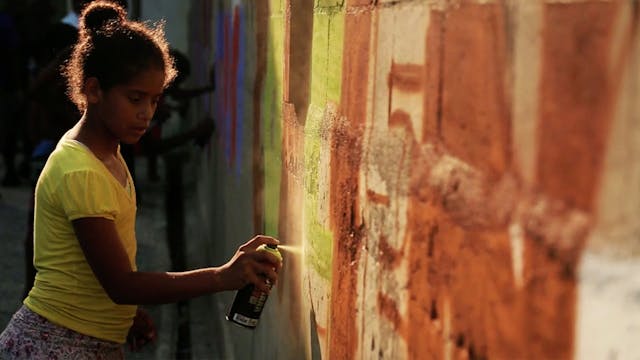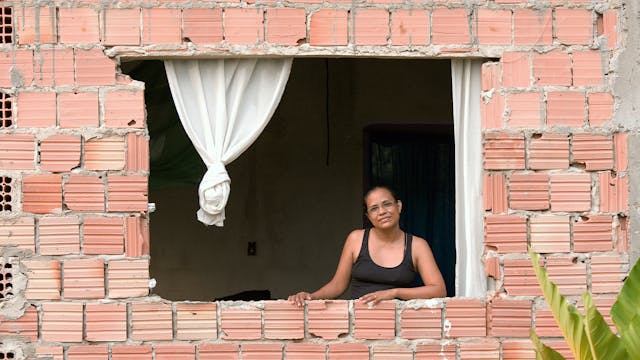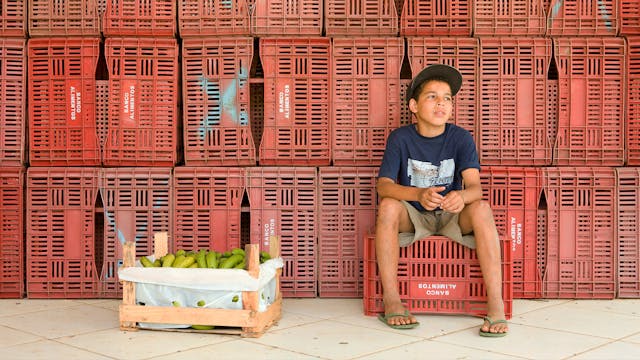The Conscious Hood: Being Black is No Crime
Brazil
•
6m 43s
Being Black Is No Crime is the fourth episode of the web-series "The Conscious Hood" documenting social issues crucial to the residents of São Paulo's Heliópolis, the second largest urban slum in Latin America. Directed by videomaker Katherine Jinyi Li and filmed during her youth journalism workshops at the community organization UNAS-Heliópolis, The Conscious Hood features Li's journalism students, their families, neighbors, and community leaders as protagonists of their social struggle.
"Being Black Is No Crime" brings the violent reality of police discrimination against young, black members of the Heliópolis favela to the screen with locals' testimonies on camera, a short skit of a standard stop and frisk, a ""funk"" rap, and a quick lesson of any person's legal rights when stopped by the police. Past episodes of "The Conscious Hood" discussed public waste management, homophobia, and women's rights in the favela.
Director & Producer: Katherine Jinyi Li
2016 | 7 min
Brazil
FILMMAKER Q&A:
https://simaacademy.com/filmmaker-qa/the-conscious-hood-being-black-is-no-crime/
Up Next in Brazil
-
Rio Eu Amo Eu Cuido
When the social movement "Rio Eu Amo Eu Cuido" was created it had a single purpose: make Rio de Janeiro a better place to live in. This documentary, shot between October 2014 and March 2015, shows a little of the movement's universe, projects and actions that took place with the help of volunteer...
-
Mapping Riverline Communities
The community of Lago do Mainá have lived with the forest and the river, nature for them is the most fundamental thing they have. However a military training base and increasing incursions by soldiers created tension between the community and the army. Through the use of social mapping the people...
-
Freedom
Brazil’s African slave descendants, the Quilombola, have fought a long and hard struggle for recognition. After the abolition of the slave trade they were left abandoned and ostracised, devoid of rights and outside of Brazilian mainstream society. But things are slowly changing amongst rural comm...



